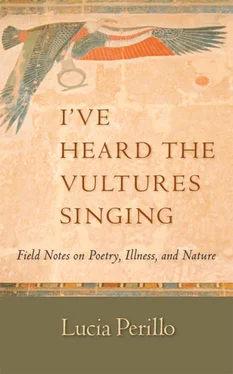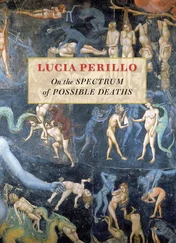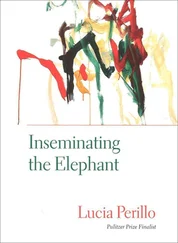Often the vitamin salesperson was someone I knew vaguely, like the man who was supposed to install carpet in my home. I’d buy the pills for a while, and the clinking of my coins became the music to which I danced with these peddlers before they ebbed away.
12
The strange thing about the Bee Lady was that she charged a pittance for her services. She lived in a fine home by the water, distinguished by the lovely gardens she’d created on its grounds. Her bee work occurred in a rustic cabin amid the vegetables and flowers. My friend had been getting stung three times a week, building up her tolerance. Now that the stings belong to the middle ground of her past, she says they ruined her life: “puking, burning, in pain. . etc.” But all I could think of was Peter Rabbit when I went with her to the Cabin of Stings.
The Bee Lady had pulled sixty bees from their hive before we came. She kept them in a jar where she sprayed them with honey solution to keep them calmly engaged in their compulsive grooming. My friend lay facedown shirtless on a table while the bee lady extracted them one at a time with a pair of wooden tongs. By pressing bee to skin, she coaxed it to sting, making two broad stripes that ran down both sides of my friend’s spine. After each bee had stung she put it into a different jar, the jar of goners.
She left all the stingers in place until the end. They looked like tiny black rose thorns when finally she tweezed them out.
Then she asked if I wanted to be stung — this seemed a too-conscious act of charity, and reflexively I refused it. But I was glad she coaxed me until I pointed shyly to my knee. One more bee in the dead jar, and I too was admitted into the club of pain.
13
Though I was skeptical by now, hope niggled me, as always, when I entered the famous psychic healer’s house. Because it was the students of the psychic healer and not the psychic healer herself who’d be doing the healing, it was being offered free. This made me wonder if the healing would be second-rate.
My hope percolated partly from the fact that I’d walked with my crutches through her muddy yard. I even climbed unaided into my designated elevated cot, though in my enthusiasm I forgot to take off my shoes. When this was called to my attention I removed them before settling back into place while the psychic healer gave her introductory speech. She announced that she was going to name her school after the wizard school in the Harry Potter books.
There were many cots set up in her living room: one student each. With the shades drawn against the day, the air full of motes, she said the students were going to form a net of energy. We could expect sensations of such profundity that they might cause us to weep, and afterward we might even see “manifestations”—particles of matter on our cots where our illness had fallen out of our bodies.
Then the dulcimer music began to ding, and the students made the net. I squinted and thought I could even see the rays of energy between them. Time collapsed like a telescope: I think I fell asleep. When the lights came up, we were all given cups of water.
My student said: “Look, you have manifestations.”
A few brown specks like mouse turds lay on the sheet. For a moment I grew elated to see how my disease had fallen out.
Then I remembered the mud on my shoes.
“No, I think these are manifestations,” my student said. And the psychic healer was called over for consultation. Manifestations, yes!
The room erupted then, all because of me.
14
The pale homeopath had sad, limp hair. Her office was only open part-time because she had to take dialysis every other afternoon.
She gave me a physical exam and questioned me in detail about my youth. “What about my youth?” I said, and she said, you know, what kind of kid I was. I described myself as moody, and when she asked me to elaborate I said, for example, I remember daydreaming more than once about taking a kitchen knife and stabbing it into my chest. All my answers she recorded in detailed notes.
Then she looked up my condition in the big musty ancient homeopathy book that a man she called her mentor had written. Every morning he poured a pitcher of ice water down his spine, and she urged me to do the same. And she gave me the tiniest of yellow pills that, under scientific scrutiny, would be found to contain only sugar — this she freely admitted.
One part active substance, diluted a millionfold.
She concluded by reading back the notes she’d taken to make sure she had recorded all pertinent information: you day-dreamt of stabbing a kitchen knife into your chest , and she said this quickly and without emotion, as if it were a summary of the weather.
15
The other day I saw my former acupuncturist at the farmers’ market. He’s hard to recognize because he is short now, whereas he was once a tall man with a wild fringe of dark hair that circled his head like a lion’s mane and which lent a devilish, or maybe I should say wizardly, aspect to his appearance. He looked as if he should have been wearing a robe covered in stars. But he wore sweatpants to indulge his catlike movements.
What caused his growing shorter was the disintegration of his spine, from a form of bone cancer that should have killed him but didn’t. His shrinkage does not seem as much of a transformation as his rigid posture does. No more cat.
When I ask how he accounts for his survival, he tells me he did both Eastern medicine and Western, alternative and mainstream; he flew to Europe, he tracked down every remedy and tried them all. I know that for a while we both walked with crutches, but then he got better while I got worse. Our conversation flags when it becomes obvious that our luck is riding opposite seats on fortune’s wheel.
But I don’t want to be so miserly of spirit as to be jealous. Instead I salute him: Soldier carry on! Then stiffly he ambles off, down the aisles of organic vegetable stalls, which have been erected under white tents like the field hospitals of the Civil War.
16
Stabilized Aloe Vera Gel, Emu Oil (7 %), Methylsulfonyl Methane, Oleyl Alcohol (and) Zanthoxylum Alatum Extract, Horse Chestnut Extract, Comfrey Extract, Calendula Extract, Chamomile Extract, Vitamins A, D3, and E, Glucosamine Sulfate, Allantoin, Panthenol, Diazolidinyl Urea.
This is a list of the active ingredients in the super-strength Blue Emu cream I’ve just bought. For three days now I have been using it to see if it will ease the burning in my lower legs. So far the doctors have not been able to come up with anything that soothes the pain, nor have acupuncture needles helped. But since this emu cream. . hard to tell. It costs twelve dollars for a two-week supply, which my mainstream doctor considers a rip-off. He may not know that its main ingredient comes from a gland in the anus of that giant vicious bird.
Might as well start with my legs, which feel like. . what? Giraffes whose necks are bandaged with sandpaper? Burning trees being evacuated by squirrels with sharp claws? Fence-posts sunk into two holes full of concrete? Concrete that’s been wetted down with acid? These descriptions are somewhat accurate, but at the same time they seem too cute. At the pain clinic where I go to have the computer pump that’s implanted in my body refilled with muscle relaxants, when the doctor (whom I call Doctor Dreamboat) asked me if my pain felt like pins and needles, I said: “No, it’s more like rubbing against a hot driveway impregnated with broken glass—” and Doctor Dreamboat cut me off with one of those doctorly semi-chuckles and said, “Oh right, you’re the poet.”
Montaigne called pain the “worst accident of our being” (the very trees seem to groan at the blows that are given them ), and yet any description comes off as self-indulgent because to speak of pain is considered to be in bad taste. Nobody likes a whiner. Forget the old women whose mustaches quiver. That’s why people took refuge in this country — to get away from those who felt no compunction about such extreme displays as slapping themselves and wailing with grief. Pain does not make for good conversation because the purpose of conversation is to elicit more conversation, and if you tell someone you want to chop off your legs the talk will come to a halt (Jim made the mistake of telling a co-worker about the leg-chopping, and she asked, wincing, if I knew about the phenomenon called phantom pain ).
Читать дальше











![Various - Birds and Nature, Vol. 12 No. 5 [December 1902]](/books/745517/various-birds-and-nature-vol-12-no-5-december-thumb.webp)
![Various - Birds and Nature Vol. 11 No. 2 [February 1902]](/books/745533/various-birds-and-nature-vol-11-no-2-february-1-thumb.webp)